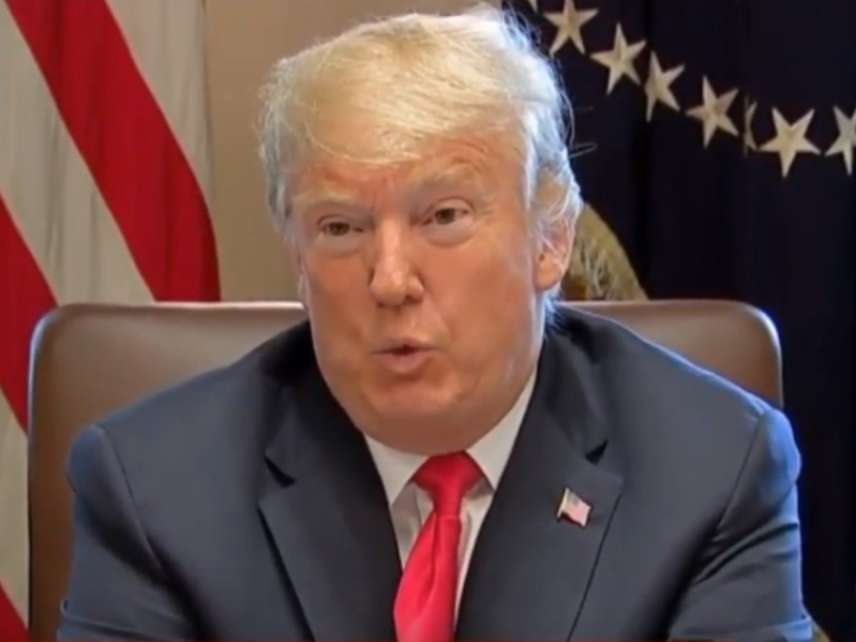Trump Says Kidnapping Unauthorized Immigrants' Children Is an Effective Deterrent
His homeland security secretary says that rationale for family separation is "offensive."

Donald Trump thinks routinely separating illegal border crossers from their children, a practice his administration abandoned in June amid a public outcry, was an effective deterrent. "If they feel there will be separation," the president told reporters on Saturday, "they don't come."
Back in June, you may recall, Secretary of Homeland Security Kirstjen Nielsen indignantly rejected that rationale for family separation as "offensive," saying, "Why would I ever create a policy that purposely does that?"
Nielsen's mentor and predecessor, White House Chief of Staff John Kelly, had repeatedly explained why. In a March 2017 interview with CNN, Kelly, who was secretary of homeland security at the time, was asked if his department planned to "separate the children from their moms and dads." His response: "Yes, I am considering it in order to deter more movement along this terribly dangerous network." In a NPR interview last May, Kelly called family separation "a tough deterrent."
According to Kelly, family separation was a calculated strategy of deterring unauthorized immigrants by threatening to kidnap their children. According to Nielsen, it was the unfortunate result of congressional inaction combined with the Trump administration's determination to finally enforce the law. According to Trump, it was both:
If they feel there will be separation, they don't come. You know, if they feel there's separation, it's a—it's a terrible situation. We want to go through Congress, but the Democrats don't want to approve anything. They're obstructionists.
That was not the only example of immigration doublethink during Saturday's Q&A. Trump also said he thinks legal immigrants should be able to sponsor the immigration of their relatives, as his wife did with her parents, but affirmed his opposition to "chain migration," which is made possible (although not easy) by a policy of allowing legal immigrants to sponsor the immigration of their relatives.


Show Comments (188)